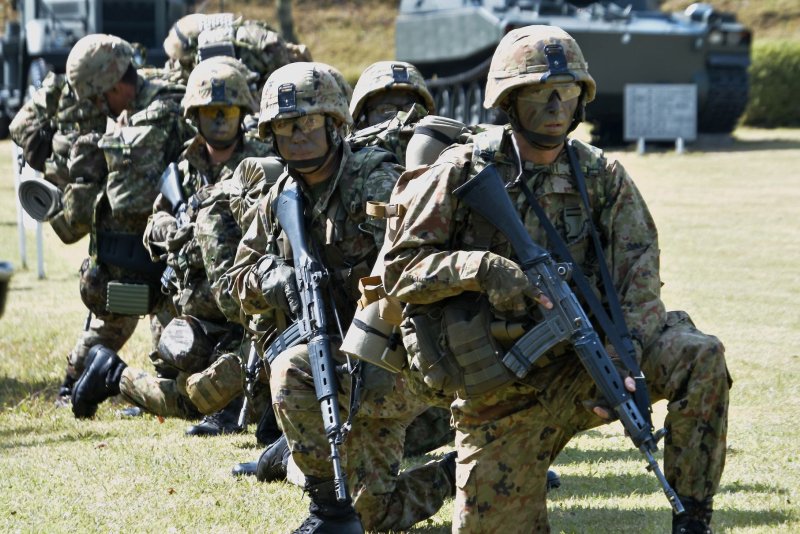One of the five active armies of Tokyo’s ground self-defense force is to operate a new electronic warfare unit targeting opponents in the East China Sea, according to a Japanese press report. File Photo by Keizo Mori/UPI |
License Photo
Aug. 20 (UPI) -- Japan is moving ahead with plans to build an electronic warfare unit as a check against Chinese maneuvers in disputed areas of the East China Sea.
The unit, designed to impede enemy assaults through the use of the electromagnetic or EM spectrum, is to be set up next year in Camp Kengun, Kumamoto Prefecture, Kyushu, in southern Japan, the Sankei Shimbun reported Tuesday.
Camp Kengun is under the direction of Japan's Western Army, one of five active armies of Tokyo's ground self-defense force.
Japan has heightened surveillance of areas near the disputed Senkaku Islands, where Chinese ships have been seen in waters Japan has claimed as its own.
By late 2020, Camp Kengun is to include an electronic warfare or EW unit with about 80 troops. EW can be applied from air, sea or land, and can target people, communication, radar or other assets.
Japan retains an electronic warfare unit in Hokkaido, near Russian territory. The future EW unit in Kumamoto Prefecture could be integrated under a single command with the existing unit, according to the Sankei.
The Kumamoto unit will operate under Japan's amphibious corps of the ground self-defense force. The amphibious corps is commonly known as Japan's marine corps. Once activated, the unit can conduct operations that include disabling the communication function of approaching opponents.
Japan is increasing defenses against China at a time when Beijing is being accused of manipulating public opinion on social media platforms.
China denied charges it has been spreading disinformation regarding the protests in Hong Kong, according to South Korean news agency Yonhap.
Chinese foreign ministry spokesman Geng Shuang said Tuesday at a regular press briefing accounts deleted by Facebook and Twitter are not propaganda accounts but media used to "explain China's position."
"It is a matter for the people of the world to judge for themselves," Geng said, referring to Chinese social media activity online, according to the report.















